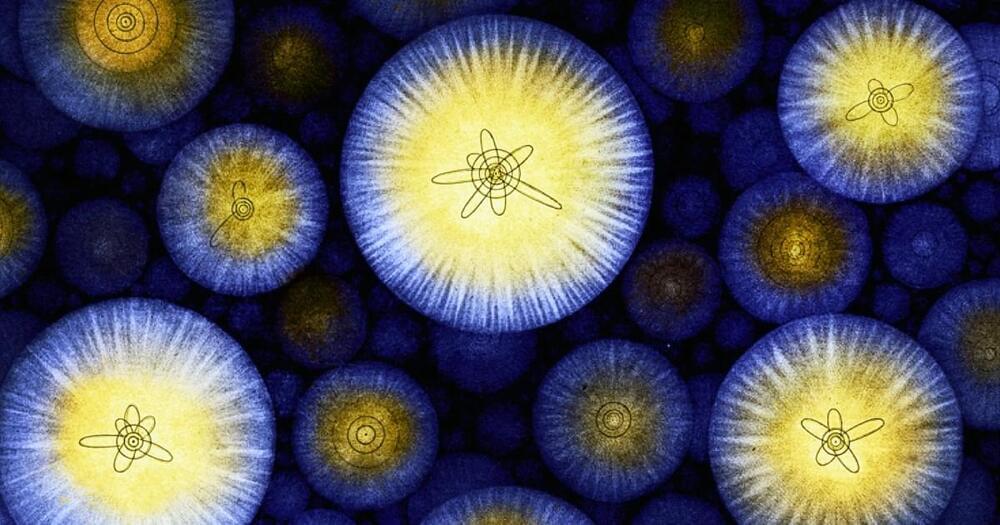The world of the very, very small is a wonderland of strangeness. Molecules, atoms, and their constituent particles did not readily reveal their secrets to the scientists that wrestled with the physics of atoms in the early 20th century. Drama, frustration, anger, puzzlement, and nervous breakdowns abounded, and it is hard for us now, a full century later, to understand what was at stake. What happened was a continuous process of worldview demolition. You might have to give up believing everything you thought to be true about something. In the case of the quantum physics pioneers, that meant changing their understanding about the rules that dictate how matter behaves.
In 1913, Bohr devised a model for the atom that looked somewhat like a solar system in miniature. Electrons moved around the atomic nucleus in circular orbits. Bohr added a few twists to his model — twists that gave them a set of weird and mysterious properties. The twists were necessary for Bohr’s model to have explanatory power — that is, for it to be able to describe the results of experimental measurements. For example, electrons’ orbits were fixed like railroad tracks around the nucleus. The electron could not be in between orbits, otherwise it could fall into the nucleus. Once it got to the lowest rung in the orbital ladder, an electron stayed there unless it jumped to a higher orbit.
Clarity about why this happened started to come with de Broglie’s idea that electrons can be seen both as particles and waves. This wave-particle duality of light and matter was startling, and Heisenberg’s uncertainty principle gave it precision. The more precisely you localize the particle, the less precisely you know how fast it moves. Heisenberg had his own theory of quantum mechanics, a complex device to compute the possible outcomes of experiments. It was beautiful but extremely hard to calculate things with.
